Senator Says Iran Deal Jeopardizes US, Israeli Security
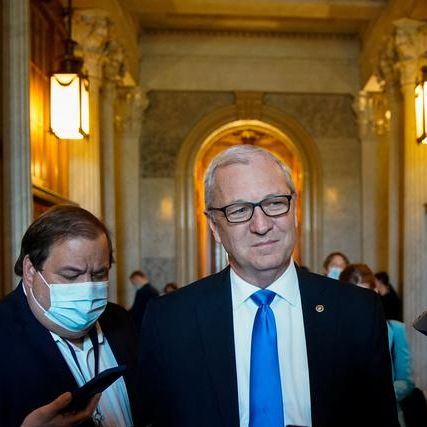
A US Senator has said the revival of the 2015 nuclear deal between Iran and world powers only emboldens Iran and endangers the security of the United States and Israel.

A US Senator has said the revival of the 2015 nuclear deal between Iran and world powers only emboldens Iran and endangers the security of the United States and Israel.
North Dakota Republican Senator Kevin John Cramer also criticized President Joe Biden on Saturday for his Iran policy, saying, “Biden is welcoming the largest state sponsor of terrorism back to the world stage”.
In a tweet with a link to a report that said Iran can reach top oil output two months after nuclear deal, he pointed out that after the Islamic Republic finalizes its agreement at the Vienna talks, “They’ll be able to develop and sell their vast energy reserves”.
He added that “Appeasement doesn’t work” with Iran, noting, “An emboldened, enriched Iran will only jeopardize our national security and Israel”
Government-run media in Iran have been jubilant this week seeing oil prices rising and diplomats saying a nuclear deal that could lift US sanctions more likely now.
Oil prices experienced a wild swing of $10 a barrel on Thursday, March 3, but reached $120 on Friday as uncertainty about the Ukraine crisis dominated news. Oil analysts have kept emphasizing that once a nuclear agreement is reached with Iran and oil export sanctions lifted, Tehran can add a minimum of one million barrels a day to world supply.
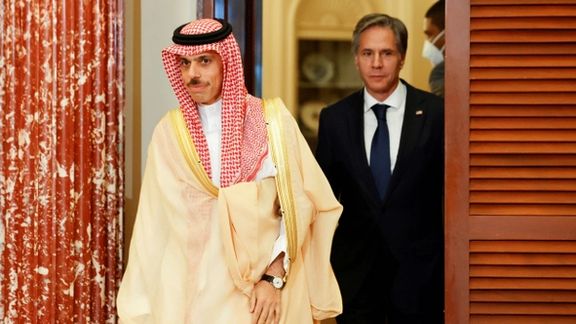
Government-run media in Iran have been jubilant this week seeing oil prices rising and diplomats saying a nuclear deal that could lift US sanctions more likely now.
Oil prices experienced a wild swing of $10 a barrel on Thursday, March 3, but styed above $110 on Friday as uncertainty about the Ukraine crisis dominated news. Oil analysts have kept emphasizing that once a nuclear agreement is reached with Iran and oil export sanctions lifted, Tehran can add up to two million barrels a day to world supply.
Iran’s oil minister on Thursday assured markets that within two months of signing a nuclear agreement with world powers, Iran can boost its production and add to its crude exports.
But it remains uncertain as to how much more Iran can supply on top of more than one million barrels it is shipping now despite US sanctions, mostly to China. An additional one million barrels is realistic to expect, but beyond that it is anyone’s guess given the fact that for three years production has stayed down, and Iran has had little available money to invest in the upkeep of its infrastructure.
Saudi Arabia, leading OPEC and potentially becoming even a more influential producer with Russia in the grips of uncertainty, has refused to add production despite direct appeals by President Joe Biden who is facing the prospect of losing US midterm elections with high prices at the pumps.
While output reduction by Saudi-led OPEC in 2020 was a reasonable move given the negative impact of the Covid pandemic on demand, its refusal to produce more and cap prices in the past one year leaves room for speculation that there could be political reasons.
Many industry analysts argue that Saudi Arabia and others simply do not have capacity to quickly restore production, but Riyadh has often done that in the past, as when it quickly restored exports following a devastating missile and drome attack on its facilities in September 2019. That attack crippled nearly 50 percent of its capacity, which it restored in a matter of weeks.
But in February after a direct appeal by Biden who called King Salman bin Abdulaziz al-Saud to ask for help in capping oil prices, the answer was a polite no. In contrast, Riyadh was fully responsive to similar requests by former president Donald Trump. Saudis were responsive to Trump’s request to lower prices before the 2018 midterm elections and later he thanked them for that.
But Biden’s relations with Saudi leaders have been cordial at best. Early in his term Biden was threatening to reconsider relations and removed Yemen’s Houthi’s from the US terror designation. He also vowed to revive the Obama-era Iran nuclear deal known as JCPOA. Riyadh had opposed the deal during Obama and supported Trump’s decision to pull out in 2018.
After 11 months of US indirect talks with Iran, a deal seems to be at hand, which would not address Saudi concerns about Iran’s regional threats. As a result, Riyadh seems to have decided to find a modus vivendi with Iran, instead of accommodating the Biden administration.
If Saudi Arabia’s reluctance to supply more oil is prompted by political motives rather than technical issues or a purely business decision, then it would be perhaps less problematic for the Biden Administration to resolve its issues with Riyadh rather than count on limited supplies from Iran.
The Intercept quoted a senior Democratic Congressional staffer as saying, “High gas prices will almost certainly be blamed on the party in power, so it really seems like the Saudis are using the oil weapon against Democrats here.”
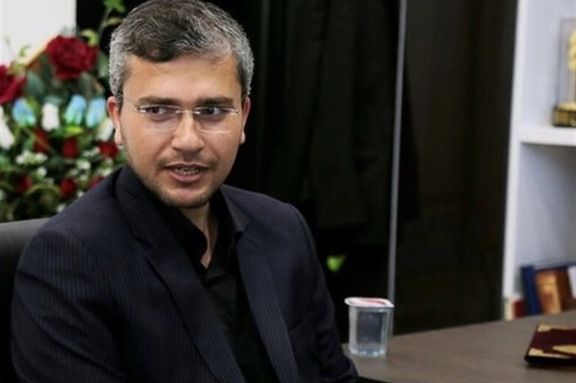
A hardliner Iranian lawmaker has reiterated that a good nuclear agreement is one that removes the Revolutionary Guards (IRGC) from the list of terrorist organizations.
Ebrahim Rezaei, a member of Iran Parliament's National Security and Foreign Policy Commission, said in a tweet on Thursday that the Islamic Republic wants the United States to remove all the sanctions imposed on the IRGC, in addition to all other sanctions.
Rezaei added that Iran faces three sides in the talks; the first is Israel “that is responsible for sabotage and assassinations”, the second is the United States that manages “simultaneous pressure and negotiation”, and the third is the IAEA and its head Rafael Grossi, who is in charge of “feeding anti-Iran propaganda”.
He also called on Grossi to be a neutral observer and not “a puppet of the Americans and the Zionists”.
His remarks echoed similar ones by the spokesman of the committee who last week described removing the IRGC from the US list of terrorist entities as one of the necessary measures to revive the JCPOA nuclear deal.
Abbaszadeh-Meshkini said, "When we say the lifting of all sanctions, it means institutions, companies and individuals; removing the Revolutionary Guard (IRGC) from the list of terrorist organizations is also one of the expectations of the Islamic Republic.”
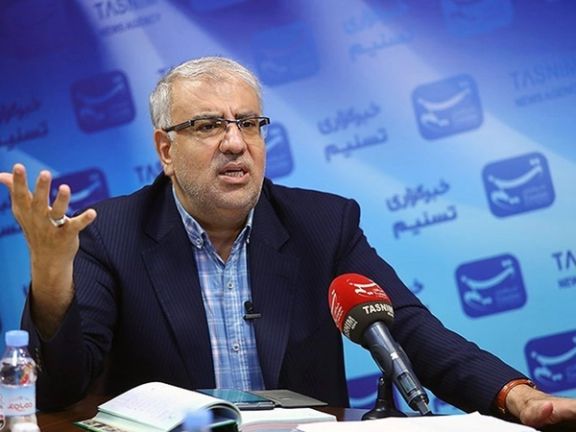
Iran’s oil production can reach its maximum less than two months after a nuclear deal is reached; Oil Minister Javad Owji was quoted as saying on Thursday.
"As soon as nuclear negotiations in Vienna are concluded, we can reach our maximum oil production capacity and exports in less than one or two months," Owji was quoted as saying by the official oil ministry news agency SHANA on Telegram. "However, we are in no way tied to waiting for the nuclear talks."
However, Iran’s ability to pump more oil is limited because of lack of investments in the oil and gas sector over the years. Owji said in November that the country needs to invest around $160 billion to upgrade its infrastructure and boost production.
Recently, Iran’s parliament speaker indicated that production cannot be boosted to 4 million barrels a day, while domestic production is already around two million barrels. Iran plans to increase output to 3.8 million barrels per day if sanctions are lifted.
Iran sits on the world’s fourth-largest oil reserves, but its crude output has dropped since the imposition of US sanctions on its economy in 2018, when then-US President Donald Trump exited the 2015 nuclear deal.
Negotiations to revive the pact have been going on for 11 months in Vienna, and diplomats are now believed to be in the final stage of talks. The United States will lift oil sanctions at least temporarily until the two sides fully retore the nuclear agreement, JCPOA.
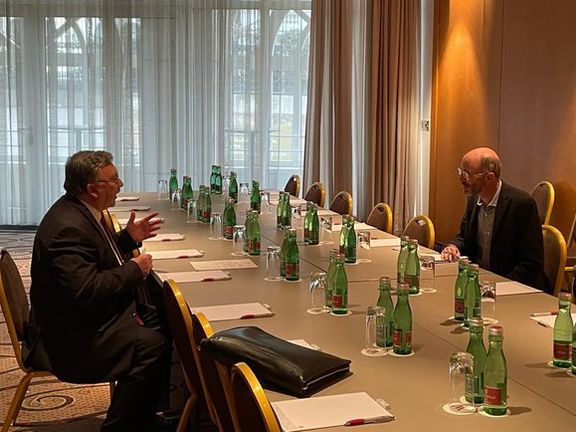
US chief envoy in Iran nuclear talks, Rob Malley, is preparing to lift sanctions imposed on Iranians tied to terrorism, a former State Department official has revealed.
Gabriel Noronha, Former Special Advisor for the Secretary's Iran Action Group in the Trump administration in a series of tweets on Wednesday quoted State Department, National Security Council and European Union unnamed officials as having authorized him to reveal that Malley is preparing to make concessions to Iran that are damaging to US national security.
Noronha said these current officials hope that by revealing details of the concession they hope to prompt the US Congress to act “to stop the capitulation.”
He also charged that Mikhail Ulyanov, Russia’s chief envoy in the talks, has been the main architect of the deal. Noronha said that his contacts said, “What is happening in Vienna is a total disaster.”
Earlier, “concessions and other misguided policies have led three members of the US negotiating team to leave,” Noronha said in one his tweets.
Republican Senator Jim Inhofe tweeted later that “There is no limits to what @USEnvoyIran will offer Tehran to return to the failed nuclear deal.”
Noronha further said, “US has promised to lift sanctions on some of the regime’s worst terrorists and torturers, leading officials in the regime’s WMD infrastructure, and is currently trying to lift sanctions on the IRGC itself.”
Iran has long demanded that all post-2018 sanctions should be lifted – not just nuclear related sanctions. There are many terrorism and human rights related sanctions. The Biden Administration has insisted that it is willing to lift only nuclear sanctions.
Following Noronha’s revelations, a State Department spokesperson responded to Iran International’s questions, saying, “We are in the final days of a complex negotiation. We are prepared to lift JCPOA-related sanctions in order to end the nuclear and regional crises prompted by our withdrawal.Beyond that, we are not going to respond to specific claims about what sanctions we would be prepared to lift as part of a mutual return to full implementation of the JCPOA.”
According to Noronha, President Biden’s team “is preparing to rescind the Supreme Leader’s Office Executive Order (E.O. 13876) as soon as coming Monday, and lift sanctions on nearly every one of the 112 people/entities sanctioned…”
Top Islamic Republic officials facing serious accusations or evidence of involvement in acts of terrorism are also apparently slated to be de-listed.
Reuters reported last month reported some details about a draft agreement being prepared in Vienna, which did not mention these details. It appeared that the US was moving cautiously, with gradual lifting of economic sanctions.
If what Noronha has reported based on information that he says he has received from current officials is true, Iran would achieve almost everything it has been demanding in 11 months of negotiations.
Republicans and some Democrats in Congress have warned the Biden Administration about making concessions to Iran. It is not clear how they would act to demand accountability from the White House.
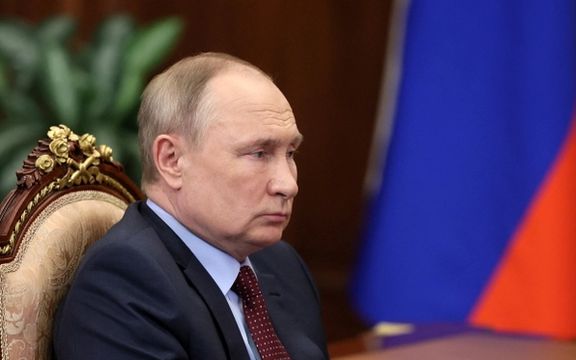
Fear of uncertainty and possible legal entanglements have made global banks jittery about dealing with Russia, similar to Iran's experience with sanctions.
Faced with an unprecedented level of sanctions on Russia, banks are taking a dim view of business with all Russian entities and dropping clients if there is even a slight doubt on their ties to that country, Reuters quoted bankers and lawyers as saying.
While European and North American governments have introduced serious banking and other business sanctions, countries in Asia and Elsewhere are introducing their own restrictions.
Sanctions experienced by Iran went a bit farther than those announced against Russia, such as cutting off all banks, instead of a select group, and the central bank from the global SWIFT. But the overall psychological and legal impact appear not be too different.
While global banks have extensive experience with sanctions and have invested billions of dollars in compliance programs in recent years, the curbs on Russia are unmatched in their scale, speed and complexity and may yet grow, said executives. Russia was a much larger financial player before the sanctions than Iran ever was.
To avoid falling foul of the rules and having assets and capital ensnared by new curbs, banks are adopting extreme caution in all of their dealings with Russian entities, actions that will likely exacerbate global trade disruptions, said bankers and lawyers.
The United States alone fined banks billions of dollars for breaching its OFAC (Office of Foreign Asset Control) restrictions since 2010. BNP alone was fined $8.9 billion in 2014, while Commerzbank and HSBC were also fined in billion-dollar figures. From 2010-2019, the US took action against 32 banks and all paid penalties.
Many of these cases were related to Iranian sanctions violations, which has made international banks extremely careful in their dealings.
A senior Hong Kong-based Asia trade finance banker with a global lender told Reuters that his compliance colleagues are asking more questions even if a financing deal involves a non-sanctioned Russian entity, directly or indirectly.
The issue is not just current sanctions, but what may still come. "It's not just managing risk from the existing sanctions, but also thinking about what more could possibly happen on that front," an Asian banker told Reuters. "No one would like to sign a billion-dollar trade finance deal only to be told a week later that the entity in Russia has also been added to the sanction list."
There is also the danger of aftereffects even when sanctions are removed. Iran experienced this syndrome when it resolved its nuclear issue with world powers in 2015 and international sanctions were lifted.
From 2016-2018 when most economic sanctions were removed, Iran had a hard time to get major deals and joint ventures. While the country needed tens of billions of dollars in investment, it was able to secure just a few billion dollars.
The fear that a regime is unpredictable and sanctions can be reimposed for new unacceptable actions, will keep the financial sector and corporations away from a country which has emerged from sanctions.
Charlie Steele, partner at Washington-based consultancy Forensic Risk Alliance and a former US Treasury Department sanctions attorney told Reuters, "Banks generally, and certainly the global banks, often tend to be very cautious and conservative with respect to sanctions, especially U.S. sanctions.”
With reporting by Reuters